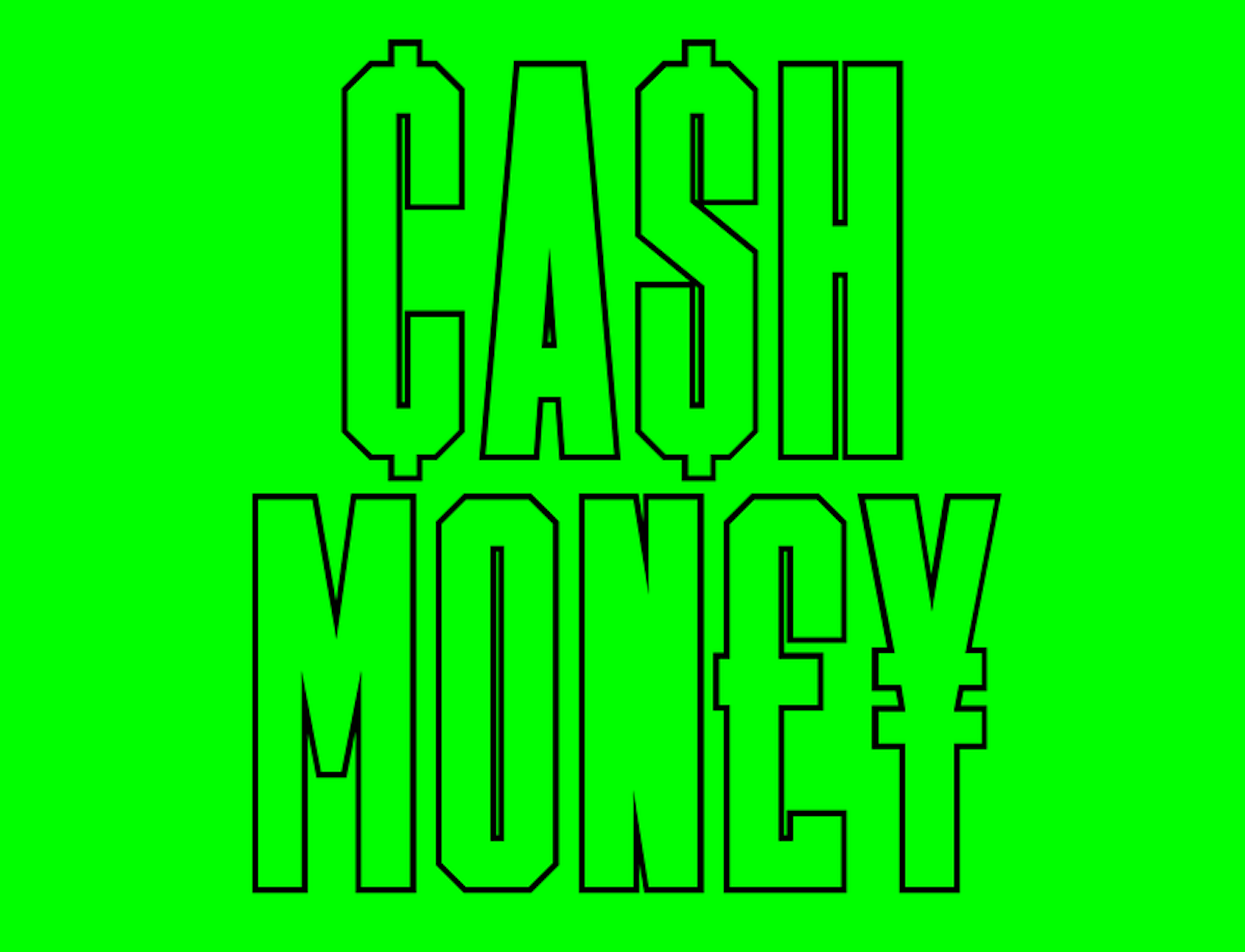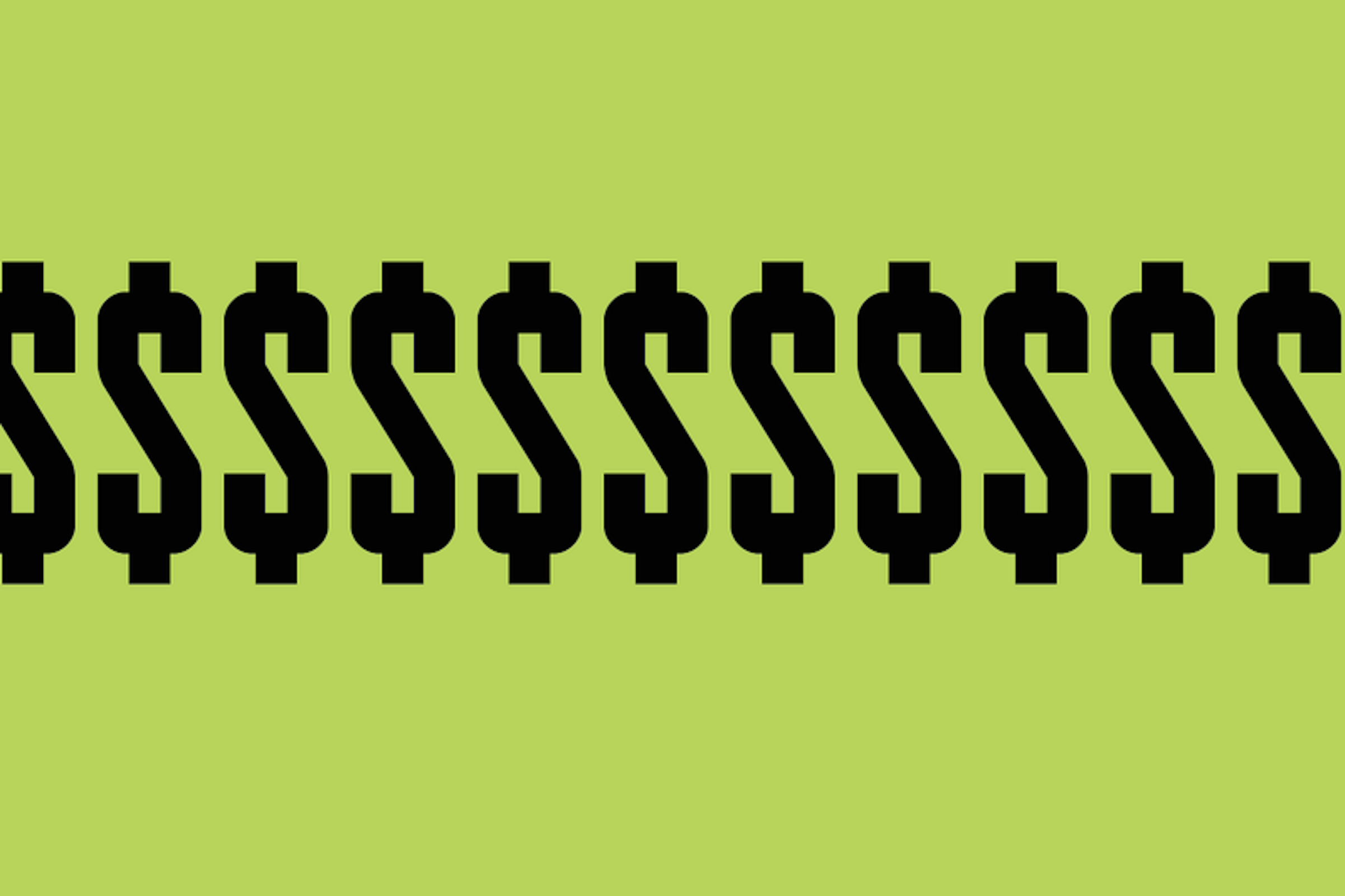Know your worth: How to negotiate fees and master money chat
Calculating your worth and navigating creative finances can be a mysterious old game. In the second article in our series about money, Kate Hollowood peers into the murky waters of negotiating fees and rates. With input from a range of experts – from Women Who’s Otegha Uwagba to The AOI’s Derek Brazell – we find out how you can grow cash-related confidence and get the most out of awkward conversations.
Let’s face it, negotiating money at work can be awkward. We’re often scared of sounding too expensive or entitled but don’t want to undersell ourselves or settle for less than we deserve. Negotiating your pay is especially uncomfortable when you’re just starting out in a creative career, yet this is when money conversations are at their most important.
“Your initial salaries are going to impact your future salaries and your overall lifetime earnings,” says Otegha Uwagba, author of Little Black Book, who is currently penning her second title which focuses on money. “Many people think they’ll start negotiating for more money later on in their career, but it is a habit that is best built early on”.
In the creative industries, where budgets are often squeezed, it’s rare for an employer to give you more cash unprompted. While freelancers have to take charge of raising their rates, you will likely have to initiate a conversation about your salary if you are in full-time employment, too. “If you don’t ask you won’t get,” says Uwagba.
Your pay is just another transaction after all, and the earlier you beef up your negotiating muscles, the better. Here’s our guide to holding your nerve and making money conversations (and checking your bank balance) pain-free.

Step 1: Understand your value
Working out your rate
You need to do your research into what the going rates or salaries are in your field and at your level. “Knowledge is power,” says Rosa Rolo, commercial director at London-based recruitment company Major Players. “Often people don’t truly evaluate themselves before entering into a negotiation and therefore aren’t clear on their offering, which makes it difficult to negotiate.”
Start by looking online for salary surveys, such as Major Players’ annual report on average freelance and perm wages. Employer review website Glassdoor also reveals how much specific companies have paid previous staff.
“The internet doesn’t account for how quickly things change. The best way to figure out what to be paid is by asking people who do similar work.” – Otegha Uwagba
Desk research can help you get a sense of what you could earn and arm you with some ballpark figures, but it’s important you don’t stop there. “The internet doesn’t account for how quickly things change,” says Uwagba. “The best way to figure out what to be paid is by asking people who do similar work.”
Straight-out asking people what they earn can be daunting, and some people won’t like being put on the spot. Uwagba recommends taking a softer approach by suggesting a figure for them to feed back on. “People are often happy to offer advice and they’ll probably end up giving away their own rate in the process,” says Uwagba. “You have to be willing to share to open up conversations.” Some phrases you could try are: “I’ve been offered £XXX for a job. Do you think that’s a reasonable figure?” or “What do you think would be a reasonable rate for a job involving X?”
Note that if you are female, it’s important to speak to people of both genders during your research phase. The gender pay gap is still rife: a 2018 survey by SJD Accountancy reveals that men in the creative industry earn up to 26% more than women in the same roles. “Ask your male counterpart what he’s getting for parity,” says Rolo.
Step 2: Weigh things up
For Uwagba, who is self-employed, there are three factors she measures up during the negotiating process: How long a job will take? What she can bring to the work? What does the job offer her? While these questions are designed for freelancers, points a) and b) are relevant if you are negotiating a salaried position.
a) How long will it take me?
“Time is the key thing that will set my rate because it’s an opportunity cost,” explains Uwagba. “If it takes me five days, that means I can’t do work for other people for five days.”
b) How much value can I add?
“Can they get half a dozen people to do the same job, or do they specifically need me?” Uwagba asks herself. If they want to hire you for your specialism or you are an expert in your field, you should push for a more premium rate.”
Her advice is confirmed by Mickey Brooks, Studio Director at production company WLT, who hires freelancers for jobs every day. “If a job comes last minute or I need someone with a particular talent, I’ll be prepared to pay a higher day rate,” he says. “The more a client has specific needs, the more they end up having to pay. However, I’d be sure to negotiate the best deal on their behalf”.
c) How much do I want to do it?
“I always go in with the fee that I want, but I might be willing to come down if it would be good for my career,” says Uwabga. Make sure you explain this rationale to your employer. “If you are prepared to lower your rate for exposure or passion for the cause, make it clear that that’s why you’re doing it,” says Rolo.

Step 3: Negotiate your worth
Asking for more money as a freelancer
“If an offered fee isn’t appropriate to the rights requested of the work, always try and get the sum raised,” says Derek Brazell, Projects Manager Association of Illustrators. “You can say to the client, ‘I’m thinking more in terms of £XXX’, or, ‘Thanks for the offer, the project sounds interesting, and I’d like to discuss the fee you’re offering.’” says Brazell.
Uwagba recommends backing up your request with evidence. “Take what you did at one rate and compare it to what you’d be doing for the job in hand,” she says. “You can show them what you have achieved in the past and also what other people charge at the same level”.
Asking for more money as an employee
To boost your chances of getting your employer to agree to a pay rise, you need to speak their language. We asked Nicola Longhurst, Head of HR at advertising agency VCCP how best to approach these conversations. “Be realistic and then think about and explain what you can bring to the role which is over and above or unique,” she says.
“If you are challenged make sure you have a well-prepared argument for why you deserve the salary you are asking for. Believe in your talent and know that you match what you think you’re worth. Ideally back this up with physical examples of your work and, if you have them, results.”
“Make sure you have a well-prepared argument. Believe in your talent and know that you match what you think you’re worth.” – Nicola Longhurst
If you’re talking to an existing employer, you need to analyse what you are currently producing for them. “Tick through everything you do and then list all of the things you do above and beyond this. Quite often you’ll realise you’re doing a lot more than what’s in your job description,” says Rolo.
Set your emotions aside
The art of negotiation is about taking a rational approach and leaving your emotions and personal circumstances out of the conversation. Your overdraft and that wedding you’re attending in the Bahamas? Not your employer’s problem. “Keep the conversation factual and based on numbers and data rather than feelings,” says Rolo.
Leaving emotions out of it works on both sides, however. If you work for a small business or one that you know is struggling, it can be easy to feel guilty about asking for more cash. For Uwagba, if you are entitled to a raise you should ask for it, regardless of the businesses’ financial circumstances. “Don’t worry about whether they have the budget, just ask them for whatever you think you deserve,” she says. The worst that can happen is they’ll say no.
And finally, it’s worth remembering that your employer or client will likely feel just as awkward discussing money as you do. “If you go in being confident and forthright, that immediately puts you at an advantage,” says Uwagba. “Clients don’t love having those conversations either, and you can use that to your benefit.”
Negotiation skills need to be developed, they aren’t something people are just born with. But if you do your research, keep your emotions at bay and ask yourself the right questions before each conversation, you’ll be sealing the deals you deserve.
...
This article is part of a new series opening up conversation surrounding how the industry works in financial terms. Read the first in the series here, featuring illustrator Steph Coathupe on why we should encourage greater transparency with creative earnings.
Written by Kate Hollowood
Illustration by Fran Caballero
Mention Otegha Uwagba
Mention VCCP
Mention Association of Illustrators
Mention Major Players




